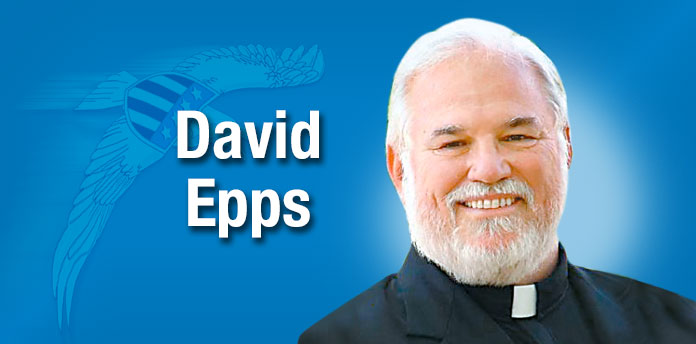When I became an employee of the Tennessee Department of Human Services back in the late 1970s, I was first assigned to do recertifications for recipients of Aid to Families with Dependent Children, or AFDC. After several months, I was transferred, at my request, to my home county and took on a new assignment — Child Protective Services.
In that new role, I would have a caseload of about fifty families a month, which I was to contact and/or visit monthly or more, if additional supervision was warranted, would investigate allegations of abuse or neglect, would be a familiar face around the courthouse, and, when necessary, take children into custody and, rarely (thankfully) cooperate with law enforcement in helping to put abusive or severely neglectful parents in jail.
I was also sent for additional in-service training. One of the most helpful courses was “Active Learning.” It was there that I discovered that the vast majority of people do very little real listening. Oh, we hear people talking, but the average person doesn’t really hear. This is especially true when people disagree about … well, about anything.
Let’s say I get into an argument with another person. While I hear the words coming from him or her, I am already forming my response in my mind. Most of the time, as soon as the other person takes a breath, I rush in to give my defense and perhaps even make counter allegations of my own. And on it goes. One of the most consistent complaints I have heard from married people who are in crisis is, “He/she never listens to me.”
Dale Carnegie, in his classic self-help book, “How to Win Friends and Influence People,” states that one of the most important characteristics of a successful person is the ability “to be a good listener.” He tells the story of Abraham Lincoln who, during a crisis deciding whether he should sign the Emancipation Proclamation, summoned a friend from Illinois to the White House.
When his friend arrived from out of state, Lincoln proceeded to rant for hours about the positives and negatives of freeing the slaves in the states of the Confederacy. He read letters he had received and newspaper articles on the subject. He argued for both sides of the question and, all the while, his friend remained silent. Finally, Lincoln thanked his friend, shook his hand, and sent him back to Illinois. Lincoln never asked his friend for an opinion. What he needed was someone to simply listen.
According to ZipRecruiter the hourly sum that people pay for a psychiatrist range from $100 to $300. If folks desire a cheaper alternative, the average hourly rate for a psychologist is $47.02. I realize that these professionals do more than just listen, but isn’t that part of the reason that people are paying such prices? Someone to listen?
In the “active listening “courses I took as a requirement for the job, I did come to the realization than very few people, including myself, really listen unless they are intentional about listening. To understand someone, one first must know what people are thinking and have some inkling of why they do what they do and why they say what they say.
Police officers are usually pretty tight-lipped with people unless those people are fellow law enforcement personnel. When I first became a police chaplain in 1989, I was warned that the officers might not want me in their vehicle and might not want to have any conversation. Some of them were understandably concerned that I might “talk religion” or that my goal was “to get them saved.”
I learned that I could ask one question and then just keep quiet for a time. That question was, “So, how did you become interested in law enforcement?” I never had an officer fail to tell me about how they became police officers. If I just listened and kept my mouth shut, I discovered that I could learn a great deal about the person with whom I was riding. I was genuinely interested, I liked and respected law enforcement, and I was intentional about listening.
It only takes watching just about any news channel to realize that hardly anybody is listening. People are talking over people, people are shouting at each other, and virtually no one is listening. To anybody.
Perhaps active listening, intentional listening, should begin at home. Do parents really listen to teens? Do teens listen to patents? Do spouses intentionally listen or are they always trying to make their own point without attempting to listen to what their spouse is actually saying?
We know what the world is like with everybody talking. We experience it every day. Can you imagine a world where people are listening — really listening? It’s a powerful thing. It is so powerful that one man listening, without saying a word, helped President Abraham Lincoln end slavery in America.
[David Epps is the Rector of the Cathedral of Christ the King (www.ctk.life). Worship services are on Sundays at 10:00 a.m. and on livestream at www.ctk.life. He is the bishop of the Diocese of the Mid-South (www.midsouthdiocese.life). He may be contacted at [email protected].]













Leave a Comment
You must be logged in to post a comment.